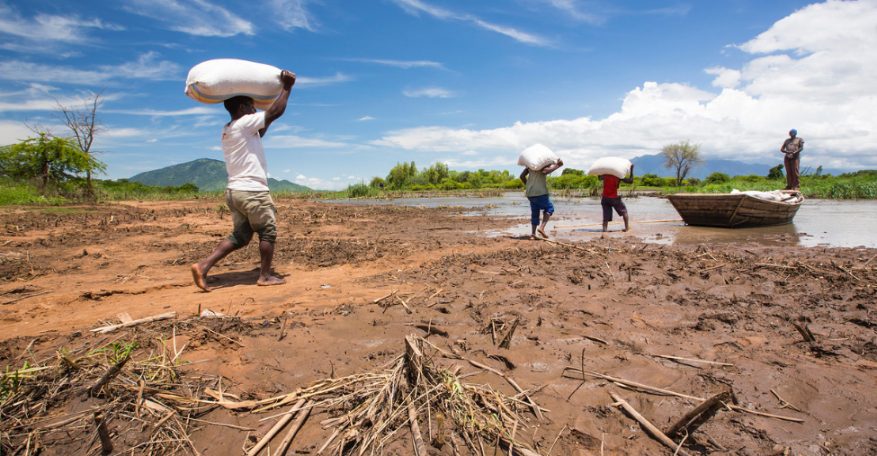Floods and cyclones have become more commonplace in Malawi, where rural poor communities are the worst affected
Two newly published international reports that warn of the increasing risk of drought and soaring temperatures in Africa add new urgency to our efforts to respond to the continent’s climate crisis.
A study, published by the World Weather Attribution Group of Scientists estimated that human-induced greenhouse gas emissions that had warmed today’s climate by 1.2°C were the primary driver of below-average rainfall in Eastern Africa.
Meanwhile, a five-year report from the Natural Reviews Earth and the Environment predicted that increased heating of the oceans would result in more extreme and frequent droughts, floods, heatwaves and severe storms on the continent. Cyclone Freddy, which roared through Malawi and Mozambique in March is the longest lasting tropical storm on record.
In East Africa, poor seasonal rains for five successive years have left vast swathes of the region barren and parched. Upwards of 34 million people across the region are currently in need of humanitarian assistance.
At Self Help Africa, we too are working in partnership with government ministries, academics and local partners to improve the access that farming communities have to weather information, as well as pest and crop disease threats.
Climate adaptation strategies are at the heart of our work in agriculture, and our new Five-Year Strategy, Sustainability and Resilience in a Changing Climate identifies how food production methods must adapt and evolve to confront the challenges posed by global warming. These methods include revisiting native crops such as sorghum and finger millet, and promoting ancient methods for water conservation and retention.
The promotion of drought tolerant crop varieties, together with climate-smart farming methods including minimum tillage techniques, retention of stubble in fields and use of cover-crops are all approaches that minimise moisture evaporation and help to improve soil productivity.
An Opinion Editorial from our CEO, Feargal O’Connell, appeared in The Irish Independent recently.


